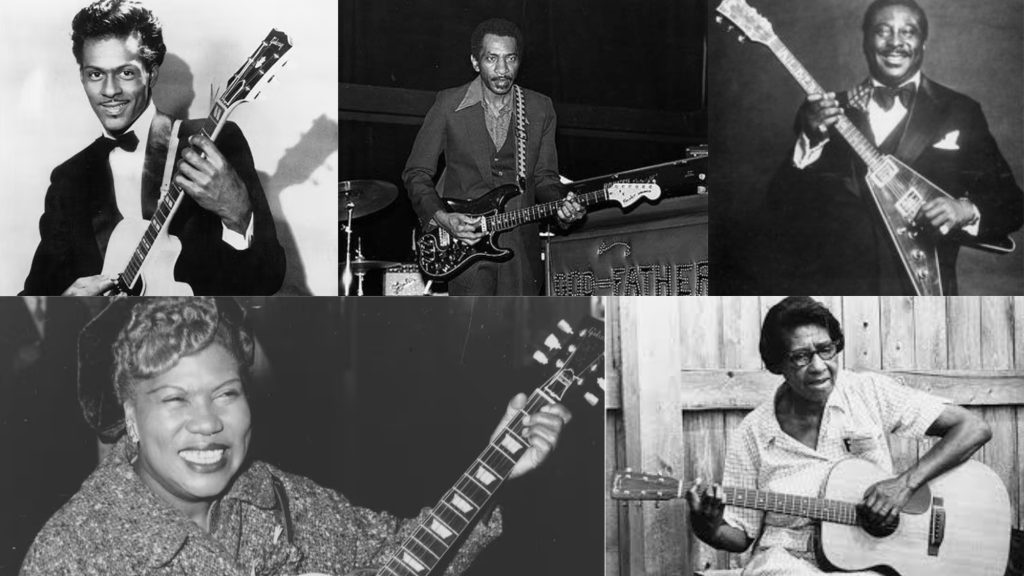Black guitarists have played a foundational role in shaping modern music, from the birth of the blues to the rise of rock, jazz, and funk.
Early innovators like Henry Sloan and Lonnie Johnson helped establish the guitar as a central instrument in African American music, impacting generations that followed.
Legendary figures such as Robert Johnson, Sister Rosetta Tharpe, and B.B. King not only pioneered new sounds and techniques but also inspired countless artists across genres.
Their creative use of rhythm, melody, and improvisation set the stage for the development of rock and roll, soul, and jazz guitar styles.
Below is the list of the most famous Black guitarists who have left their mark on the world, and some of whom are still making an impact today.
1. Jimi Hendrix
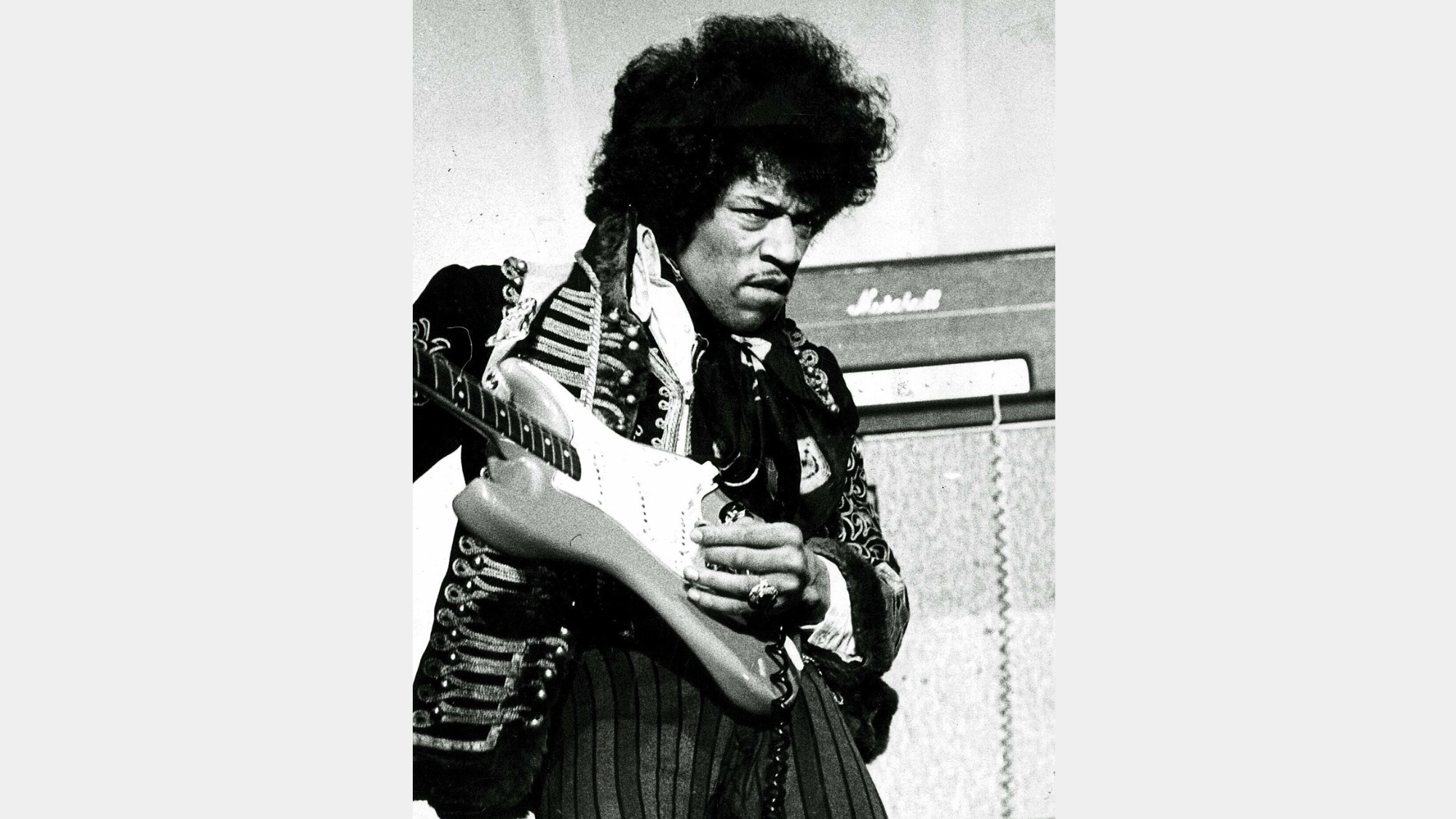
This artist changed the way the electric guitar was played with his creative use of fuzz, feedback, and distortion. His guitar playing was unique, combining technical skill with deep emotion.
Though his career lasted just four years, his impact on music is everlasting. He’s considered one of the greatest guitarists, inspiring musicians across many genres.
| Detail | Information |
|---|---|
| Date of Birth | November 27, 1942 |
| Best Songs | Purple Haze, The Wind Cries Mary, All Along the Watchtower |
| Awards | Grammy Lifetime Achievement Award (1992), 2 Grammy Hall of Fame inductions |
2. B.B. King
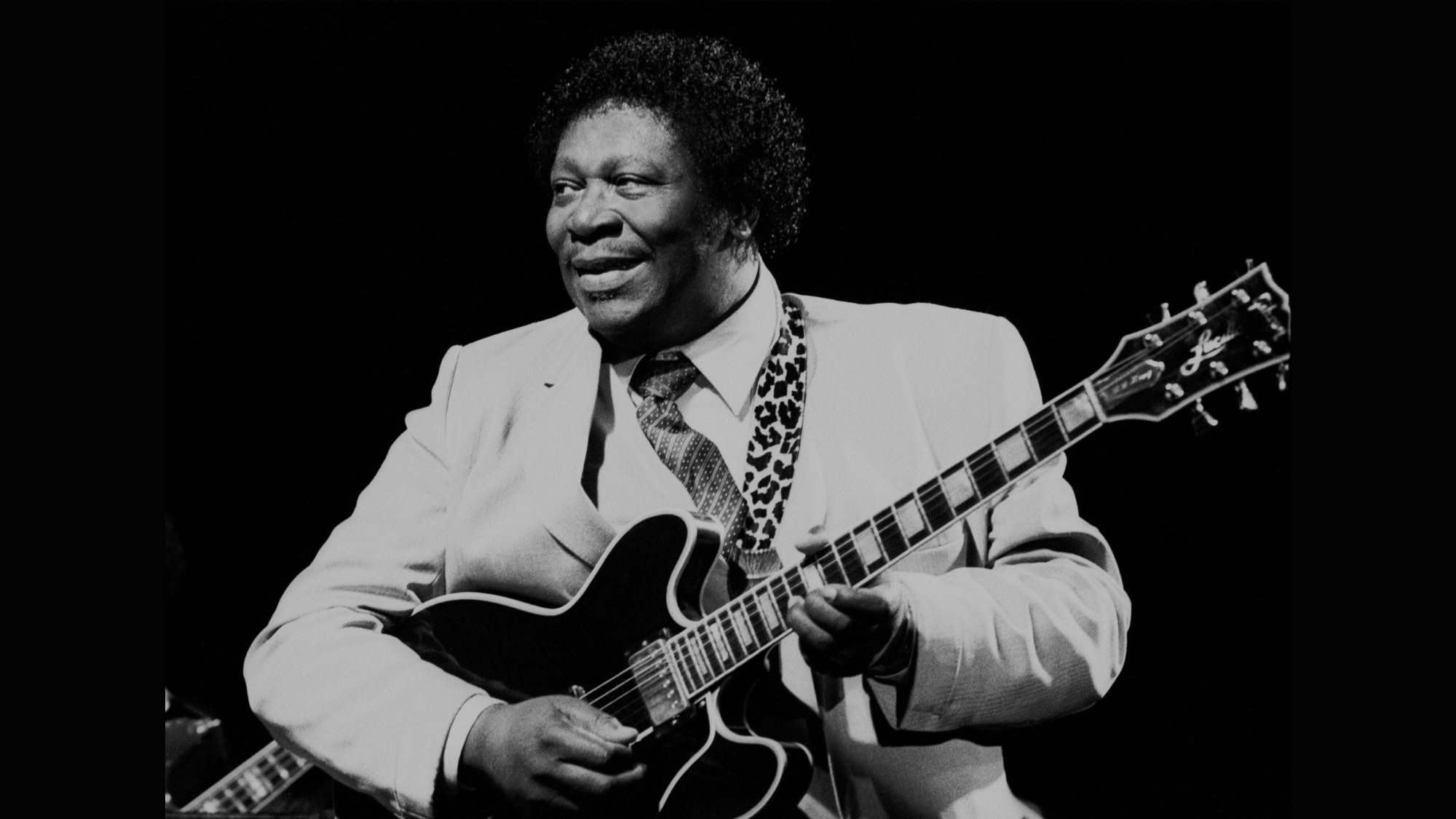
A guitarist, a storyteller, who turned his guitar into a tool of emotion. His famous guitar, Lucille, became his voice, expressing his deepest feelings through every note.
His unique style impacted countless artists and ensured that the blues would live on for generations.
| Detail | Information |
|---|---|
| Date of Birth | September 16, 1925 |
| Best Songs | The Thrill Is Gone, Every Day I Have the Blues, Lucille |
| Awards | 15 Grammy Awards |
3. Chuck Berry
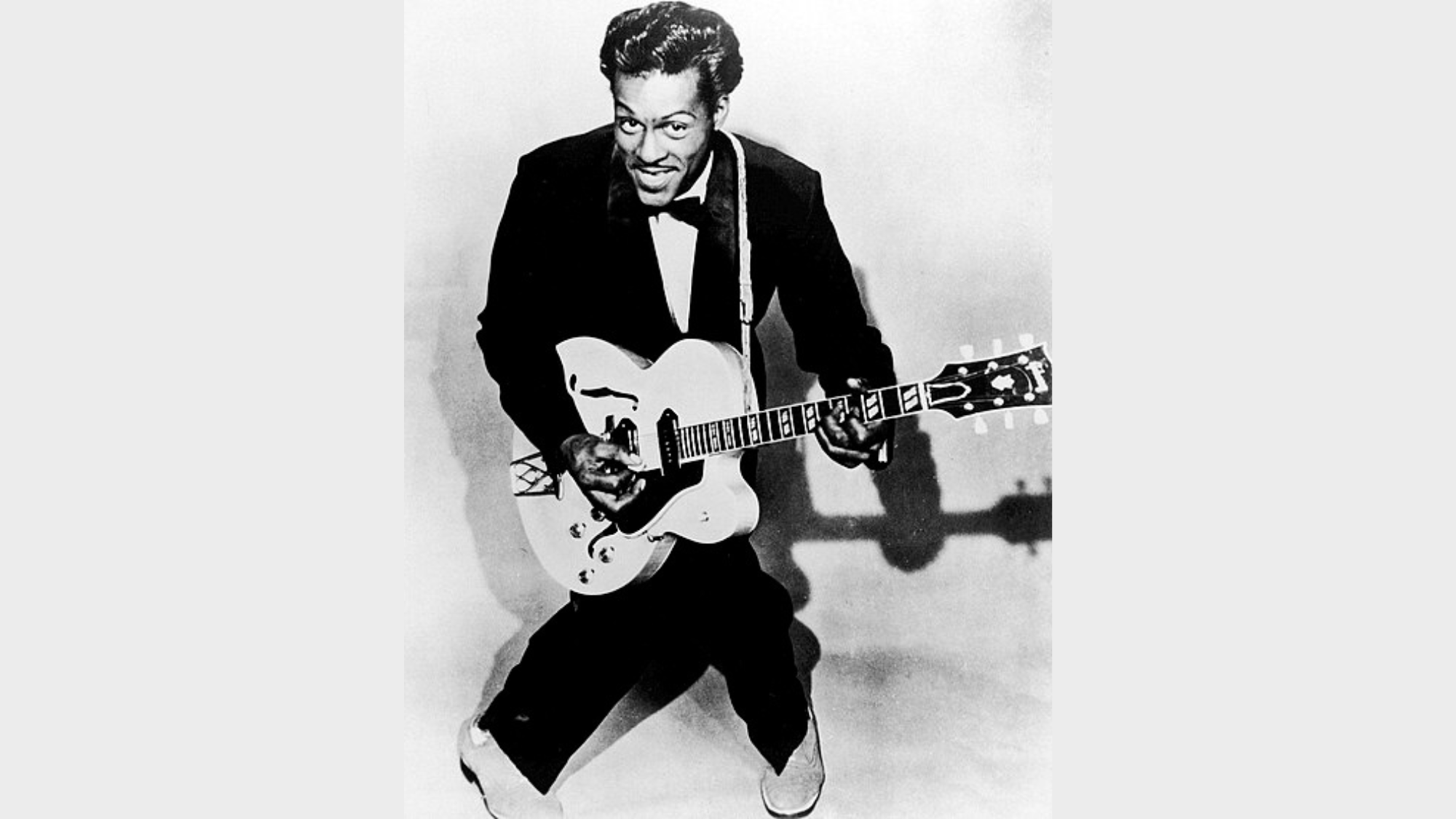
The man who changed the world of music with his unique blend of rhythm and blues and country created a distinctive sound that became the foundation of rock ‘n’ roll.
His influence stretches far and wide, shaping the music of The Beatles, The Rolling Stones, and others.
| Detail | Information |
|---|---|
| Date of Birth | October 18, 1926 |
| Best Songs | Johnny B. Goode, Roll Over Beethoven, and Maybellene |
| Awards | A Grammy Lifetime Achievement Award |
4. Robert Johnson
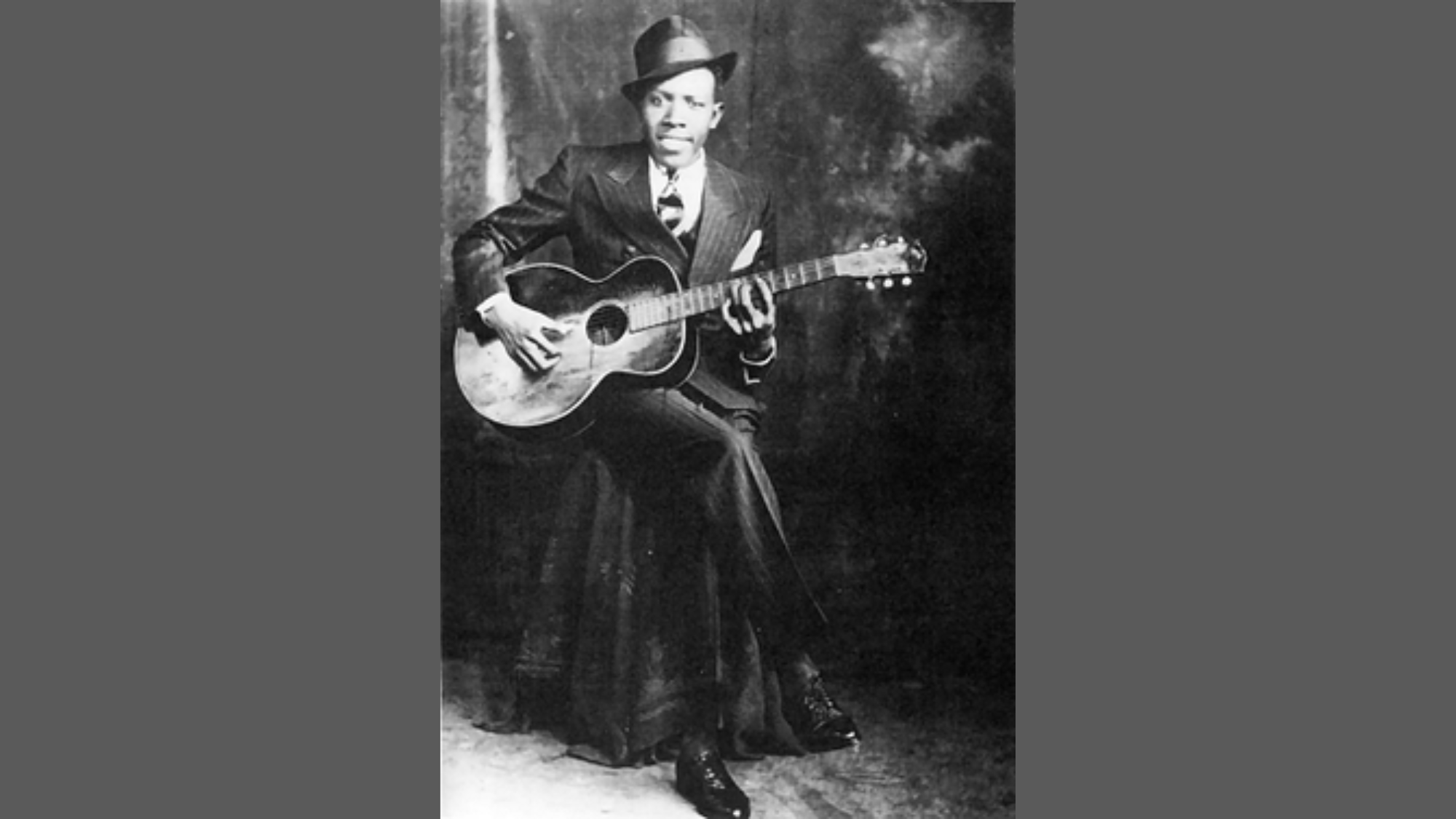
Widely regarded as one of the greatest blues musicians, his legacy lives on through his music.
His recordings from 1936–1937, including Cross Road Blues and Hellhound on My Trail, have shaped the sound of blues and rock for generations.
| Detail | Information |
|---|---|
| Date of Birth | May 8, 1911 |
| Best Songs | Cross Road Blues, Hellhound on My Trail, Sweet Home Chicago |
5. Muddy Waters
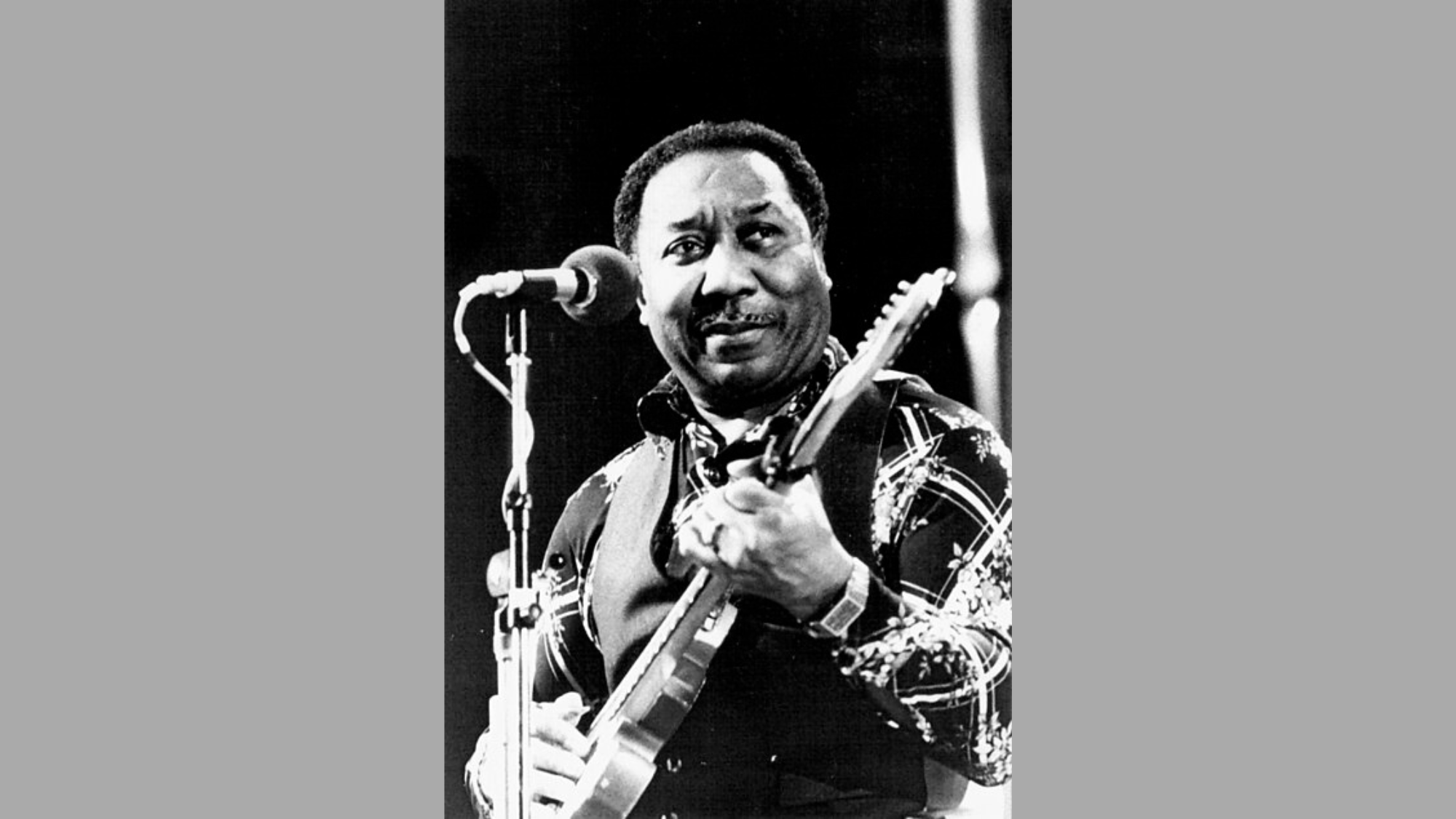
He is the man who brought the Delta blues to Chicago, creating the electrified “Chicago blues” sound that helped shape both blues and rock music for generations to come.
His impact is clear in the work of guitar legends like Eric Clapton, Stevie Ray Vaughan, and even The Rolling Stones.
| Detail | Information |
|---|---|
| Date of Birth | April 4, 1913 |
| Best Songs | Hoochie Coochie Man, Mannish Boy, I’m Your Hoochie Coochie Man |
| Awards | 6 Grammy Awards |
6. Buddy Guy
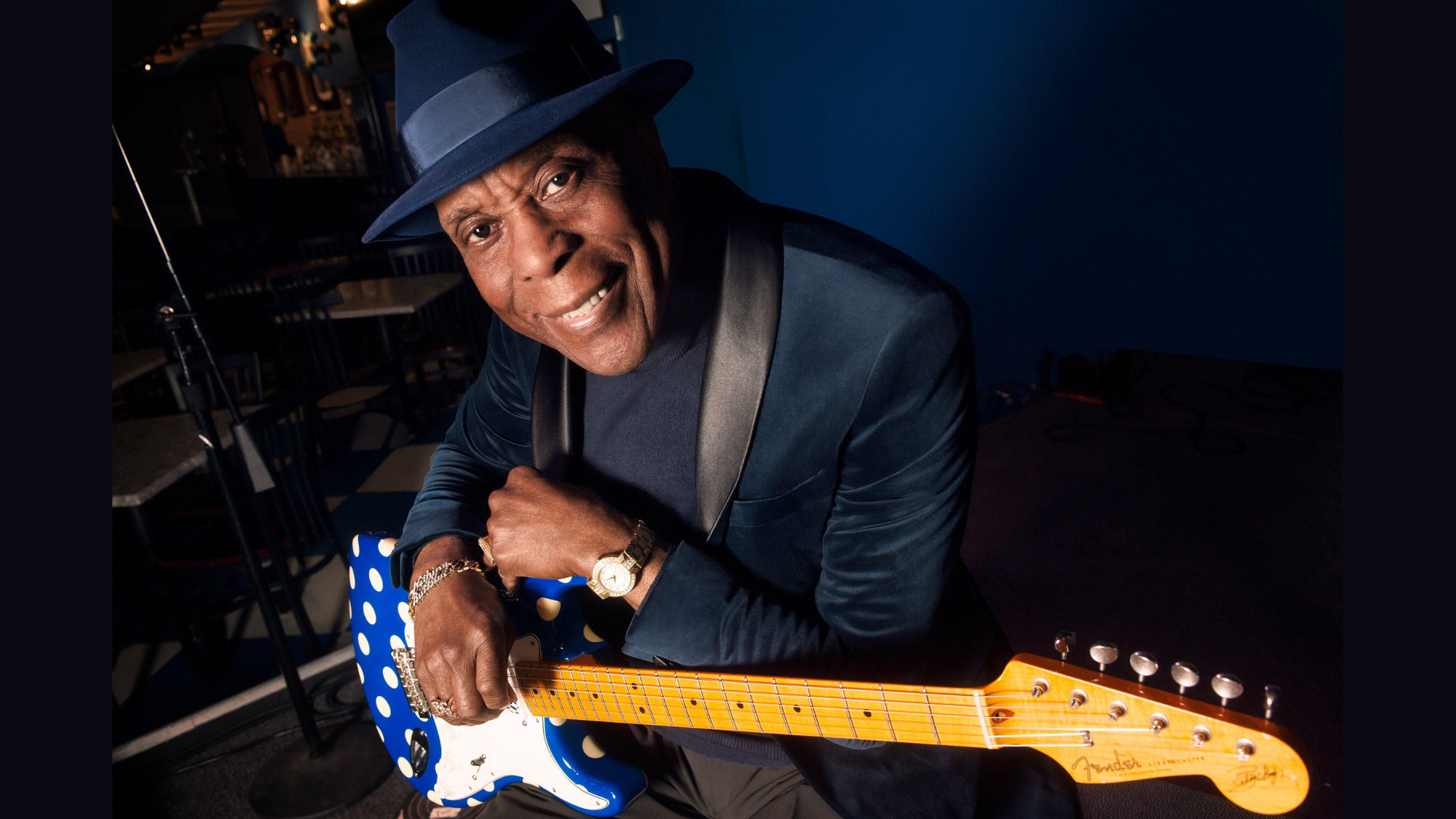
A true blues legend whose impact still shines bright, known for his powerful solos and energetic stage presence.
Combining classic Delta blues with a new, creative style, he helped redefine the genre. He mentored artists like Jimi Hendrix and influenced rock legends, leaving a lasting impact on music.
| Detail | Information |
|---|---|
| Date of Birth | July 30, 1936 |
| Best Songs | Stone Crazy, Damn Right, I’ve Got the Blues, and Mustang Sally |
| Awards | Won 8 Grammys, 34 Blues Music Awards |
7. T-Bone Walker
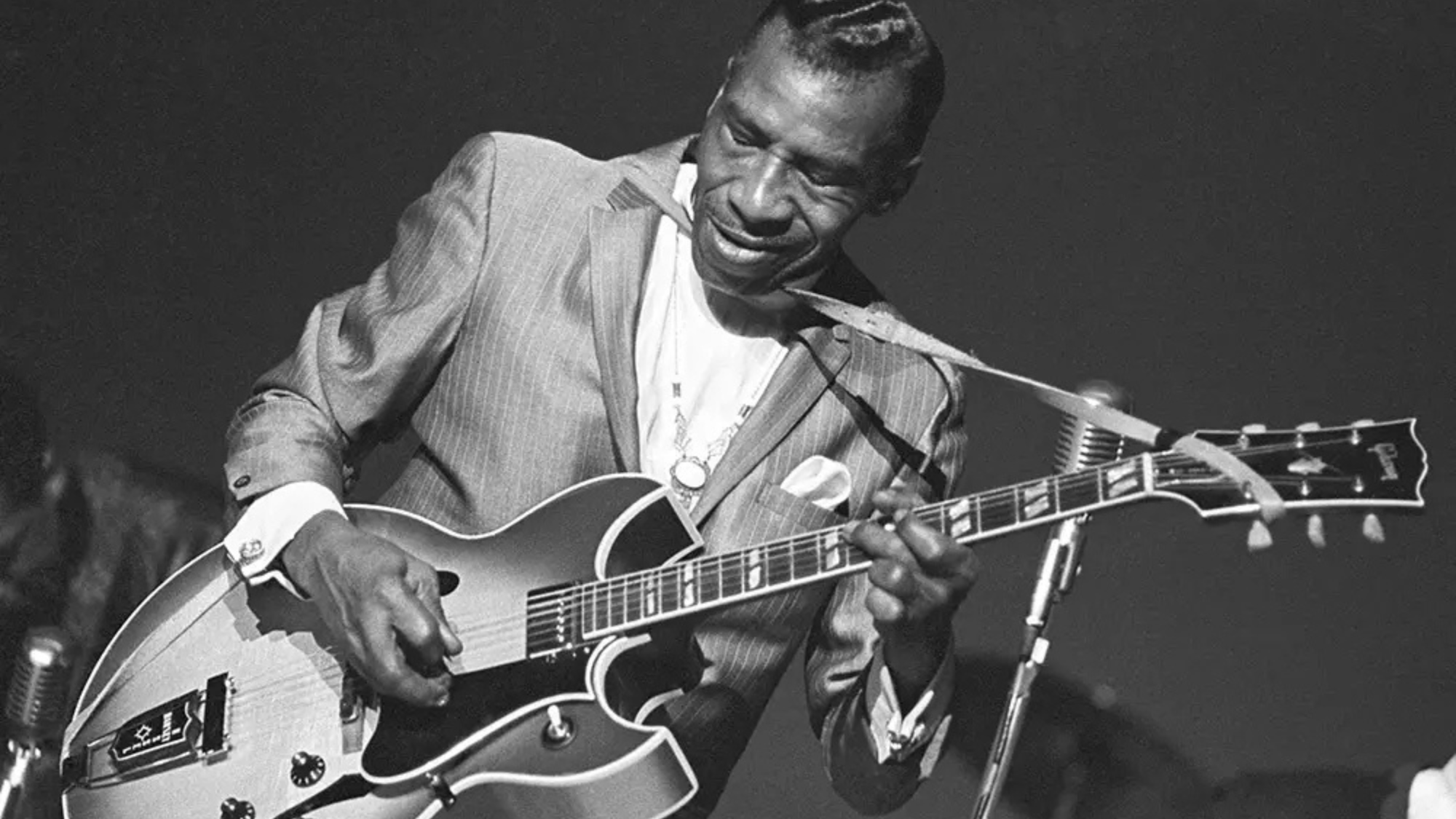
He was one of the first to introduce the electric guitar to blues music and changed the way the instrument was used.
His work not only impacted blues but also helped lay the foundation for rock and roll, making him a key player in American music.
| Detail | Information |
|---|---|
| Date of Birth | May 28, 1910 |
| Best Songs | Call It Stormy Monday, T-Bone Shuffle, Bobby Sox Blues |
| Awards | Won a Grammy for Best Ethnic or Traditional Recording |
8. Otis Rush
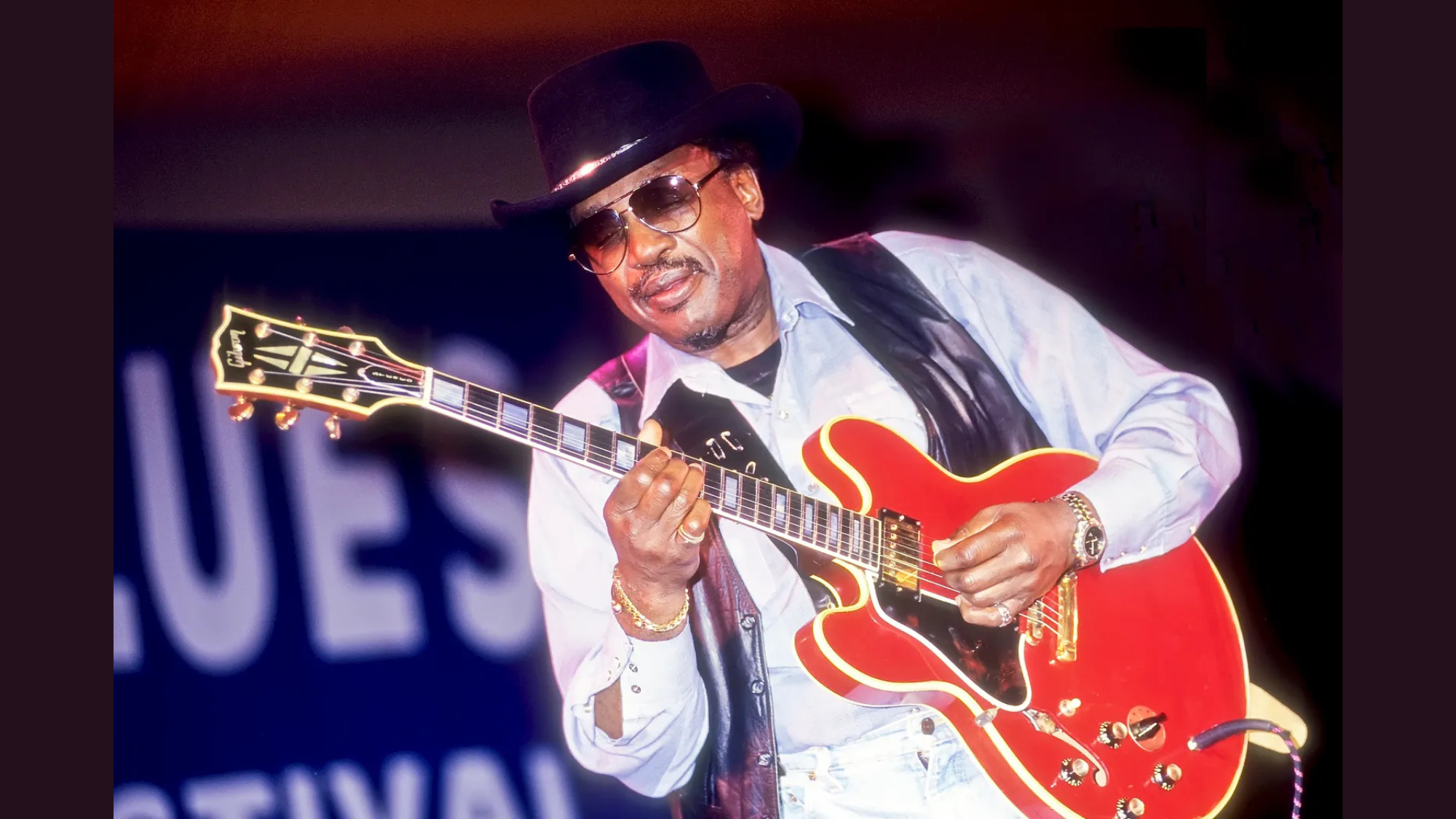
More than just a guitarist, he was a storyteller. Known for his powerful bends and rich vibrato, he made every note feel personal, as if it came straight from his heart.
Though his career was often overlooked, his influence can be heard in artists like Eric Clapton and Jimmy Page, proving how powerful his music truly was.
| Detail | Information |
|---|---|
| Date of Birth | April 29, 1934 |
| Best Songs | I Can’t Quit You Baby, Double Trouble, and All Your Love (I Miss Loving) |
| Awards | Won a Grammy for Best Traditional Blues Album |
9. Albert King
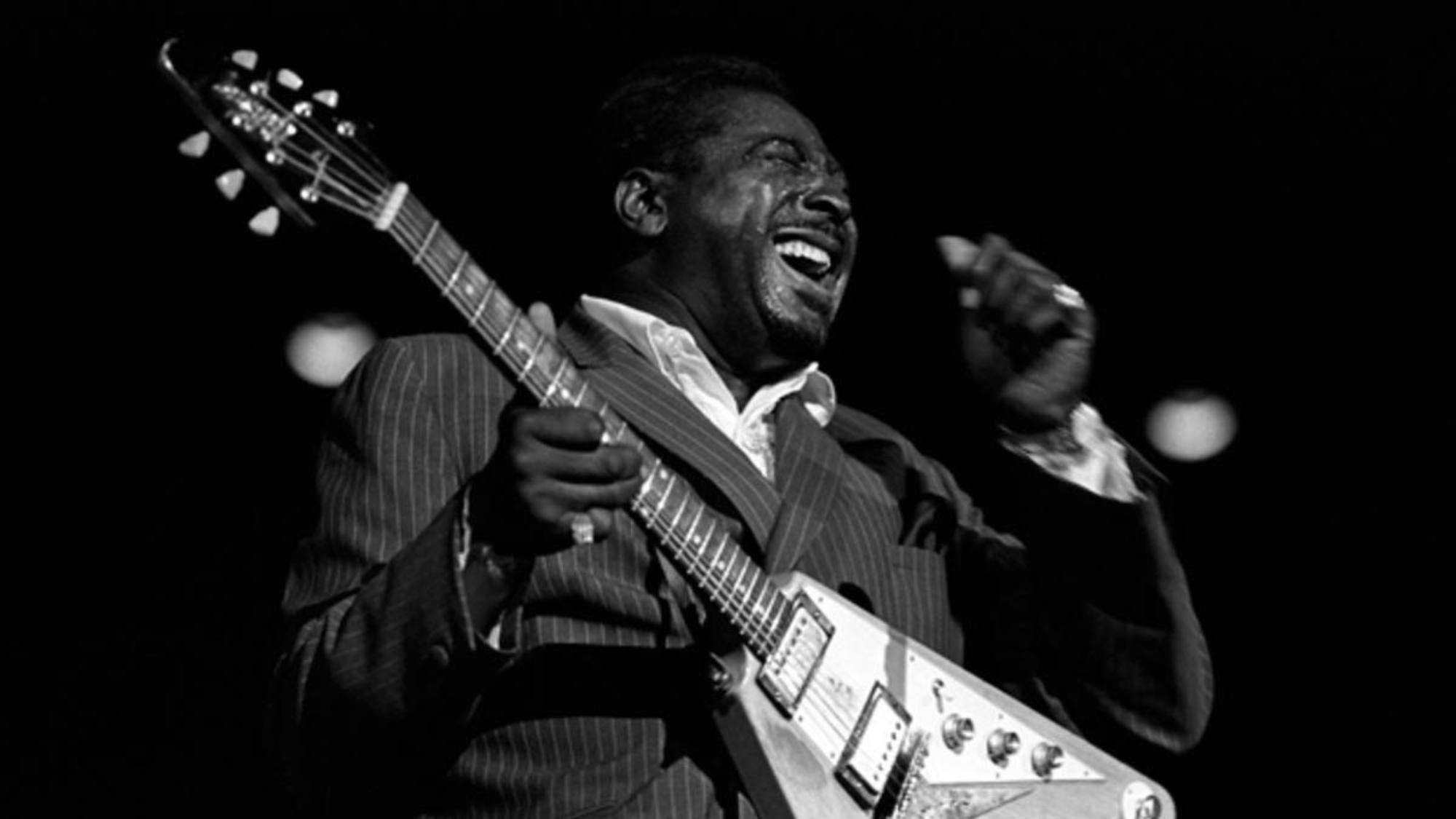
Albert King was a powerful blues guitarist whose playing was just as bold as his personality. He played with a fierce style, using his Flying V guitar and bending strings in ways no one had before.
His music is full of raw emotion. It became the foundation of modern blues and rock, inspiring artists like Stevie Ray Vaughan and Jimi Hendrix.
| Detail | Information |
|---|---|
| Date of Birth | April 25, 1923 |
| Best Songs | Born Under a Bad Sign, Crosscut Saw, As the Years Go Passing By |
| Awards | Rock and Roll Hall of Fame, St. Louis Walk of Fame |
10. Bo Diddley
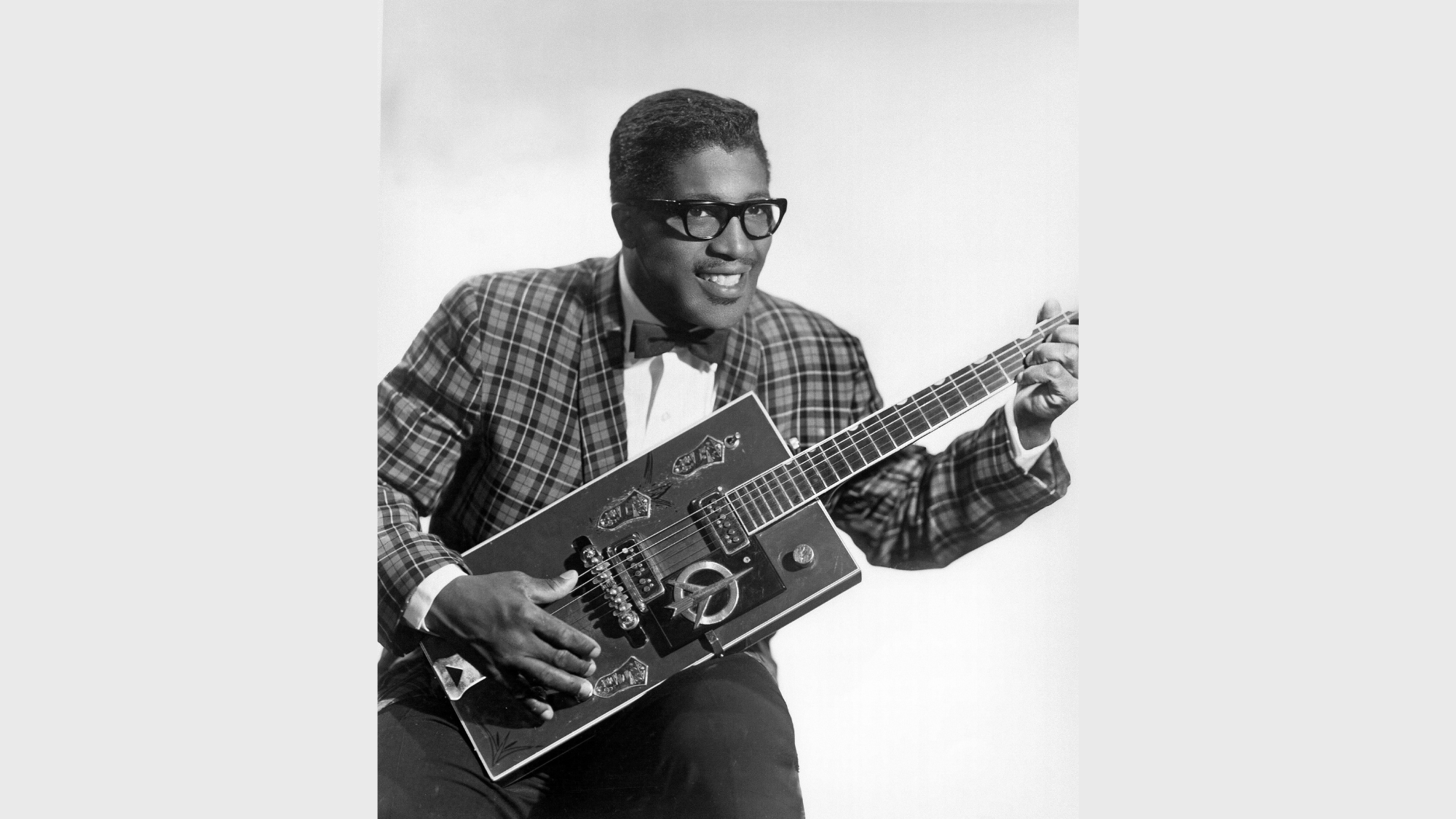
The heartbeat of rock ‘n’ roll, he mixed blues and African rhythms to create a new sound. With his creative guitar riffs and fresh approach, he created music that was both simple and groundbreaking, leaving a lasting impact on rock history.
| Detail | Information |
|---|---|
| Date of Birth | December 30, 1928 |
| Best Songs | Who Do You Love, Mona, I’m a Man |
| Awards | Grammy Lifetime Achievement Award, Rock and Roll Hall of Fame, Blues Hall of Fame, Rhythm and Blues Music Hall of Fame, Mississippi Musicians Hall of Fame, Florida Artists Hall of Fame |
11. Wes Montgomery
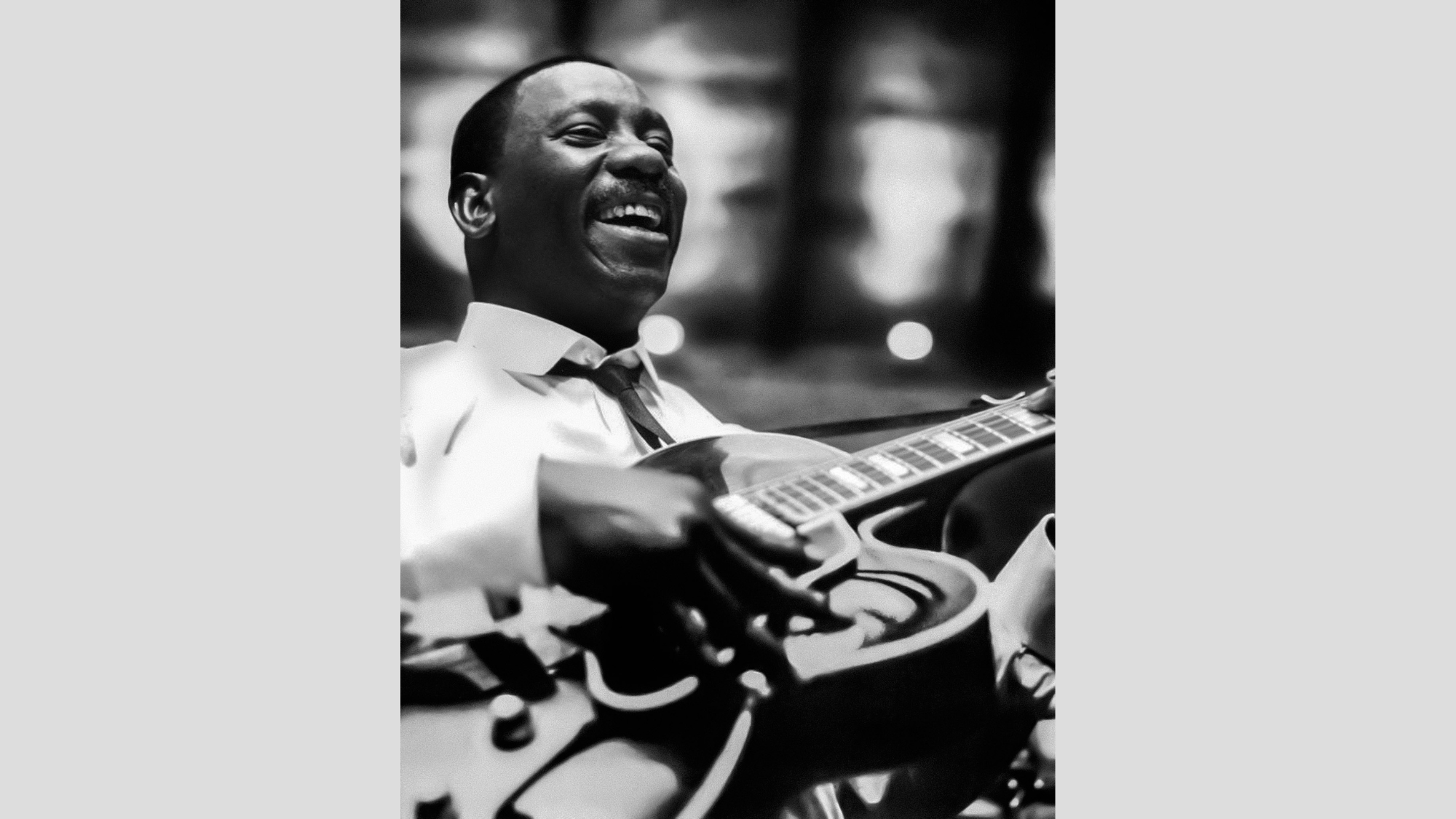
He began playing guitar in his late teens, inspired by Charlie Christian’s recordings. He had previously played a four-string tenor guitar at age twelve.
Known for his use of octaves and block chords in solos, changed the way jazz guitar was played. A true musical pioneer, he is widely regarded as one of the most famous jazz guitarists.
| Detail | Information |
|---|---|
| Date of Birth | March 6, 1925 |
| Best Songs | Round Midnight, West Coast Blues, Misty, Four on Six |
| Awards | won multiple Grammys |
12. Jimmy Nolen
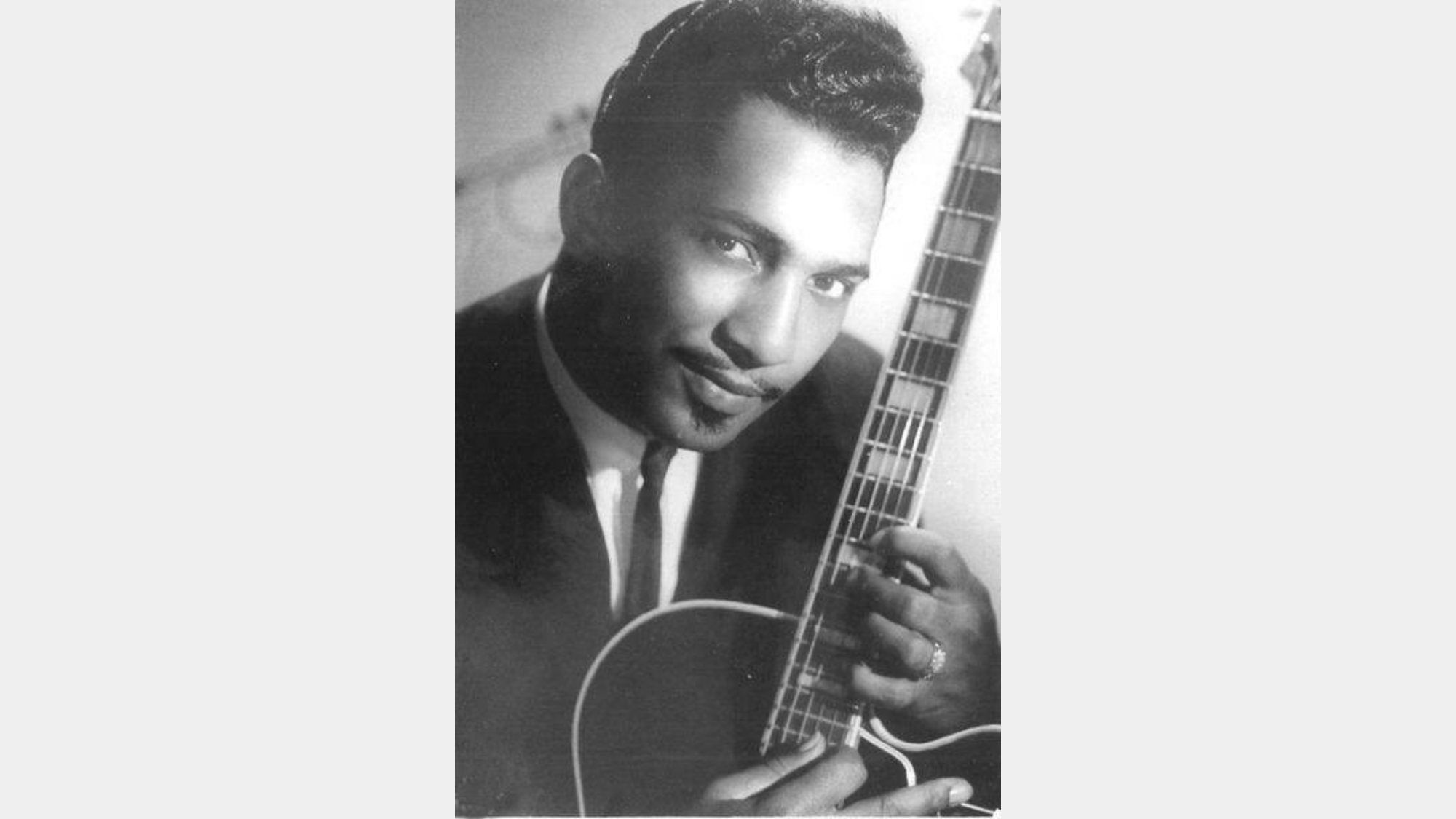
The driving force behind the sound of funk guitar, he started his career in blues and R&B but found his true voice when he joined James Brown’s band in the 1960s.
Though he rarely stepped into the spotlight, his impact is undeniable. His sound became the heartbeat of funk, influencing artists like Prince and Nile Rodgers.
| Detail | Information |
|---|---|
| Date of Birth | April 3, 1934 |
| Best Songs | Papa’s Got a Brand New Bag, Cold Sweat, Out of Sight |
13. Tiny Grimes
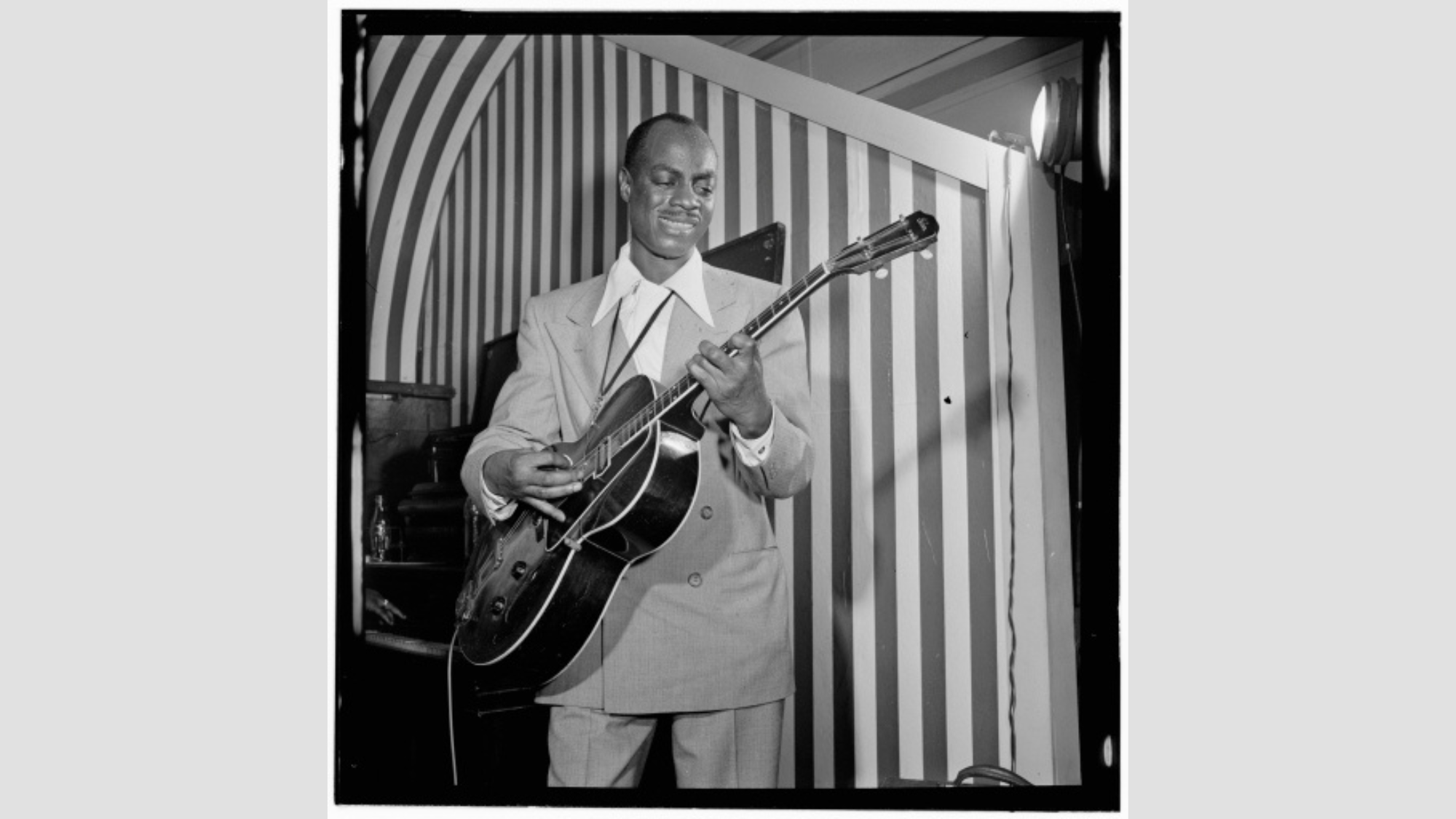
Tiny Grimes’s musical journey started with drums and piano, but in 1938, he picked up the guitar. Influenced by Charlie Christian, Grimes developed a unique style that combined swing, blues, and jazz, yet lively playing helped shape modern guitar techniques.
| Detail | Information |
|---|---|
| Date of Birth | November 7, 1916 |
| Best Songs | Grimes’ Theme, After Hours, Tiny’s Blues |
14. Eddie Durham
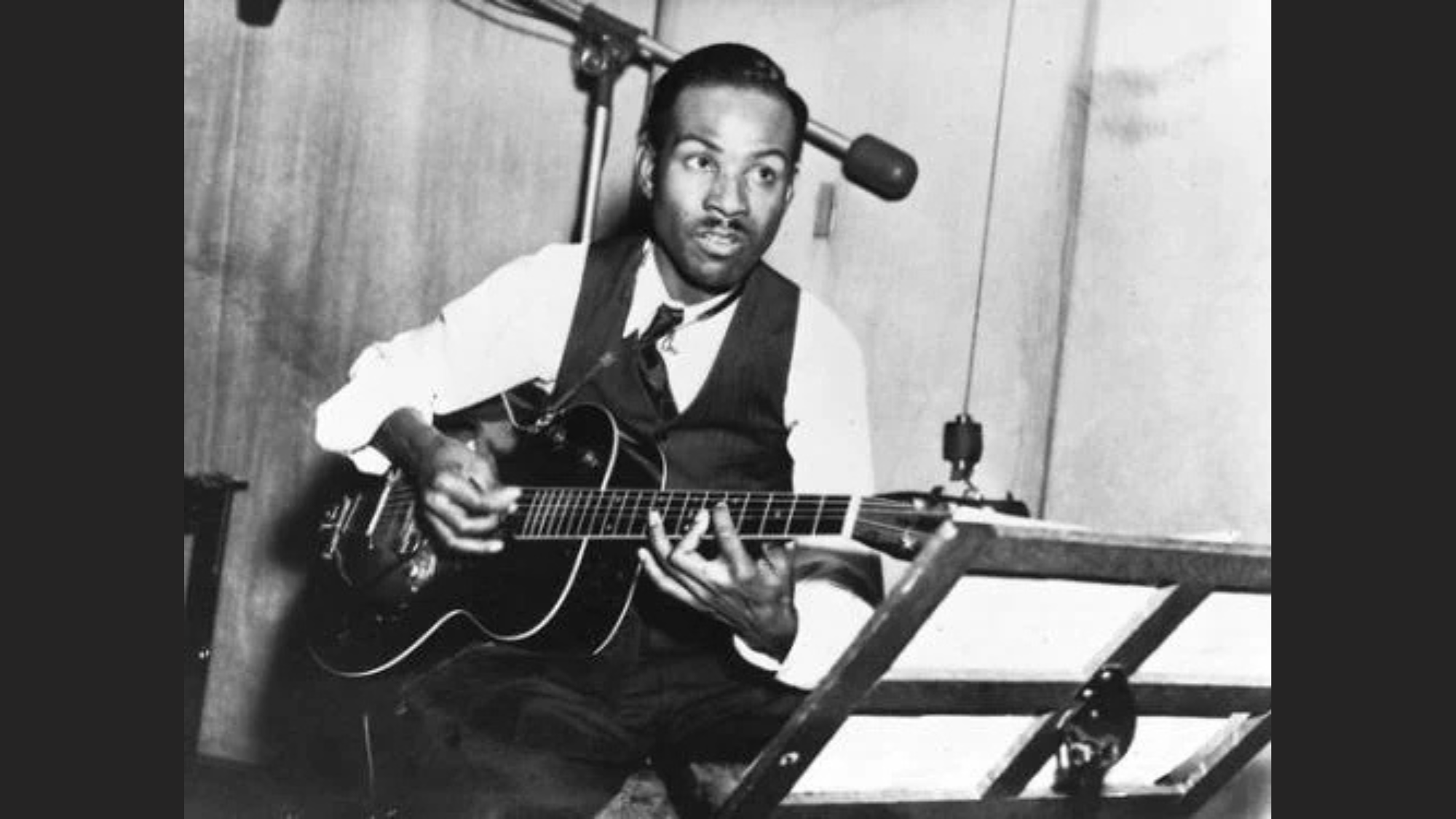
One of the first musicians to use the electric guitar in jazz, he started experimenting with amplified tones in the late 1920s.
In 1938, he recorded one of the first electric guitar solos with the Kansas City Five. Even though he made groundbreaking contributions, he often worked behind the scenes as an arranger and composer rather than performing in the spotlight.
| Detail | Information |
|---|---|
| Date of Birth | August 19, 1906 |
| Best Songs | Topsy, In the Mood, One O’Clock Jump |
15. Charley Patton
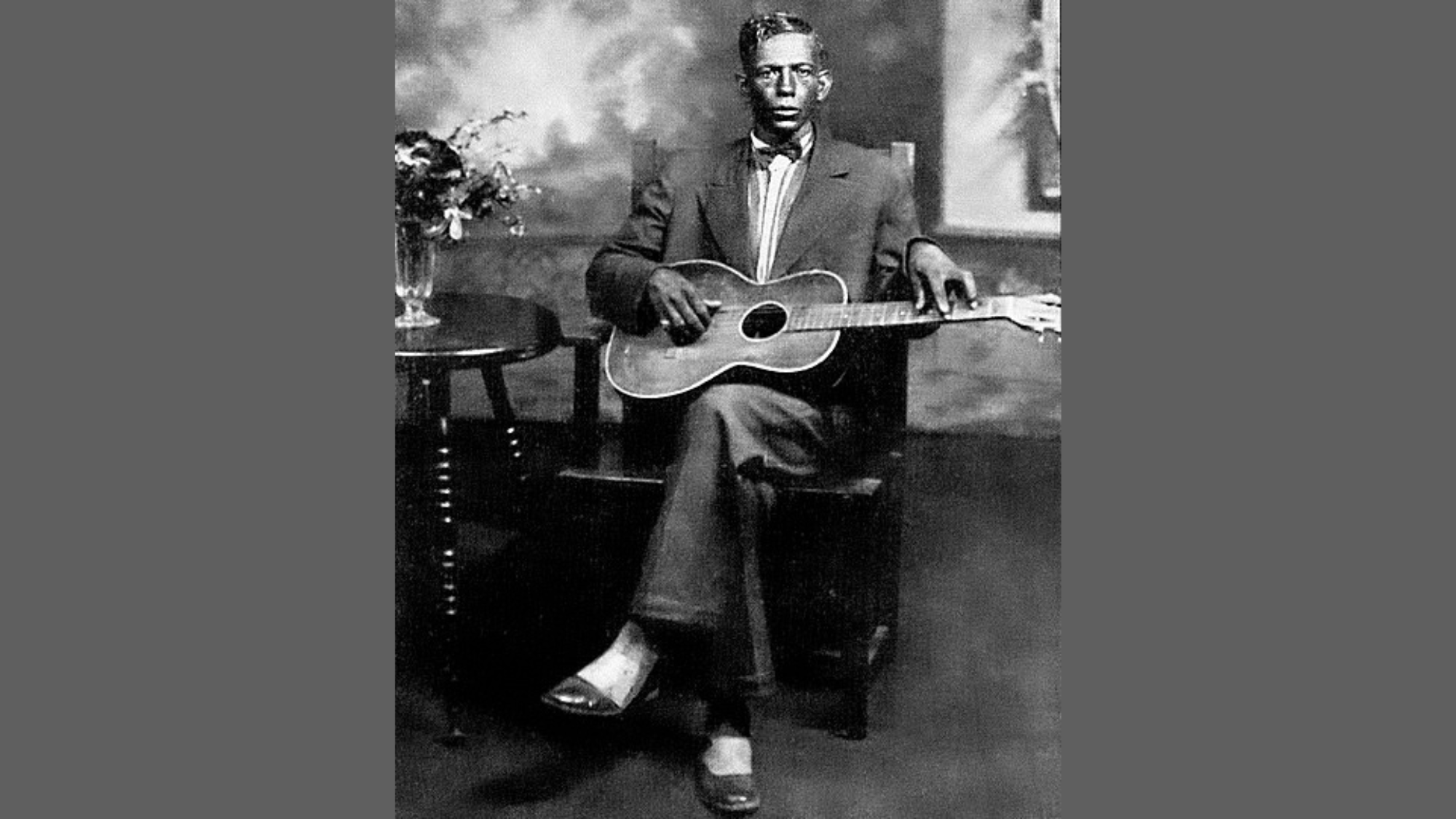
Charley Patton, known as the “Father of the Delta Blues” because of his important role in shaping the genre. His rough voice and powerful guitar playing set him apart.
Patton used unique techniques like slapping, sliding, and plucking that impacted many blues artists. He also performed in a dramatic style, holding his guitar behind his head or between his legs, years before rock stars like Jimi Hendrix made these moves famous.
| Detail | Information |
|---|---|
| Date of Birth | April 1891 |
| Best Songs | Pony Blues, High Water Everywhere, A Spoonful Blues |
| Awards | Received a Grammy Lifetime Achievement Award posthumously. |
16. Curtis Mayfield
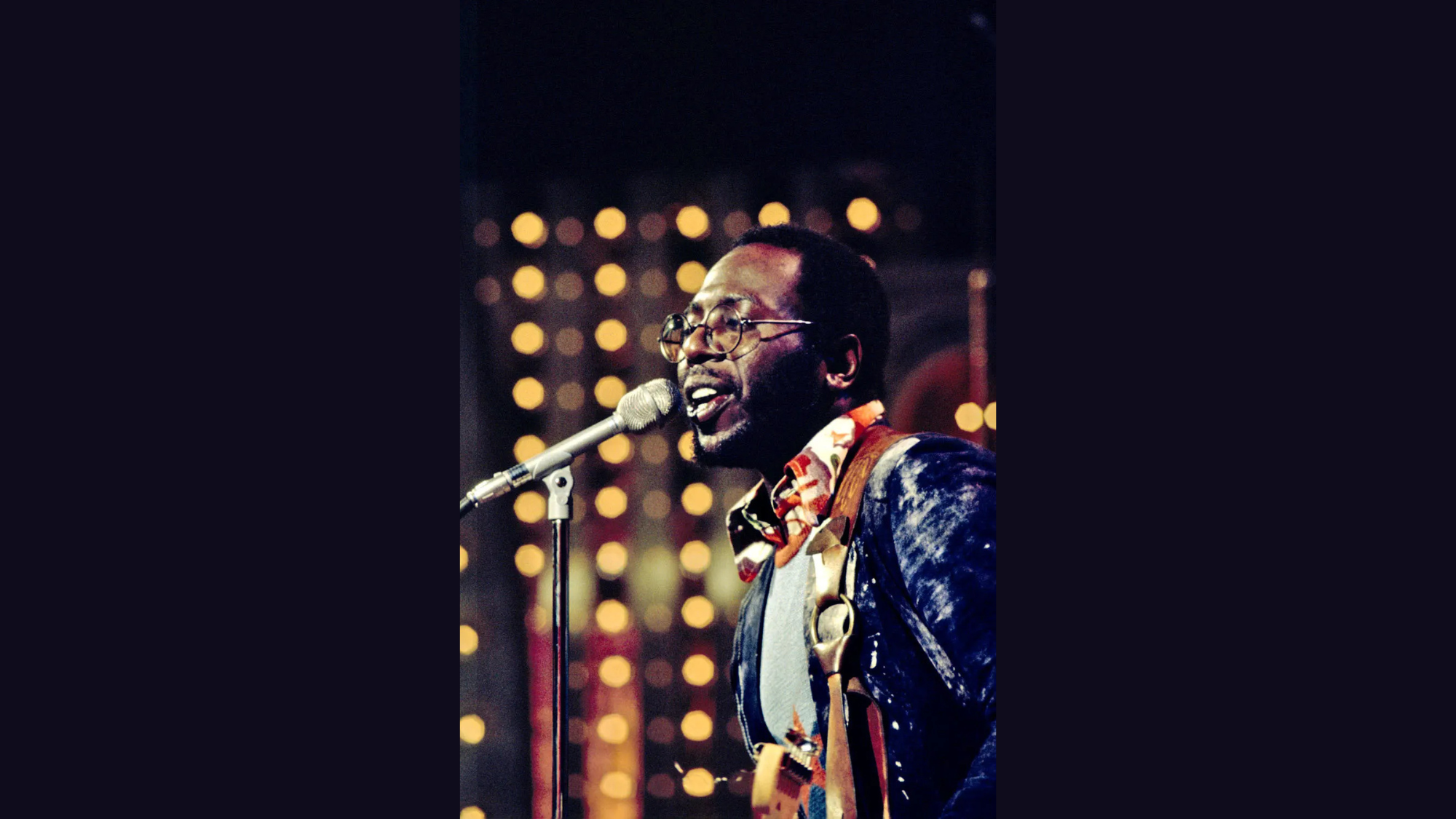
He was a powerful force in music, mixing soul, funk, and messages about social change. Through his music, he brought attention to social problems like racism and poverty, making his music powerful and meaningful during the Civil Rights movement.
His legacy lives on in artists who use music to inspire change through their music, to inspire social change.
| Detail | Information |
|---|---|
| Date of Birth | June 3, 1942 |
| Best Songs | People Get Ready, Superfly, Move On Up, Freddie’s Dead |
| Awards | Grammy Legend Award, Grammy Lifetime Achievement Award, Rock and Roll Hall of Fame, Songwriters Hall of Fame |
17. Lead Belly
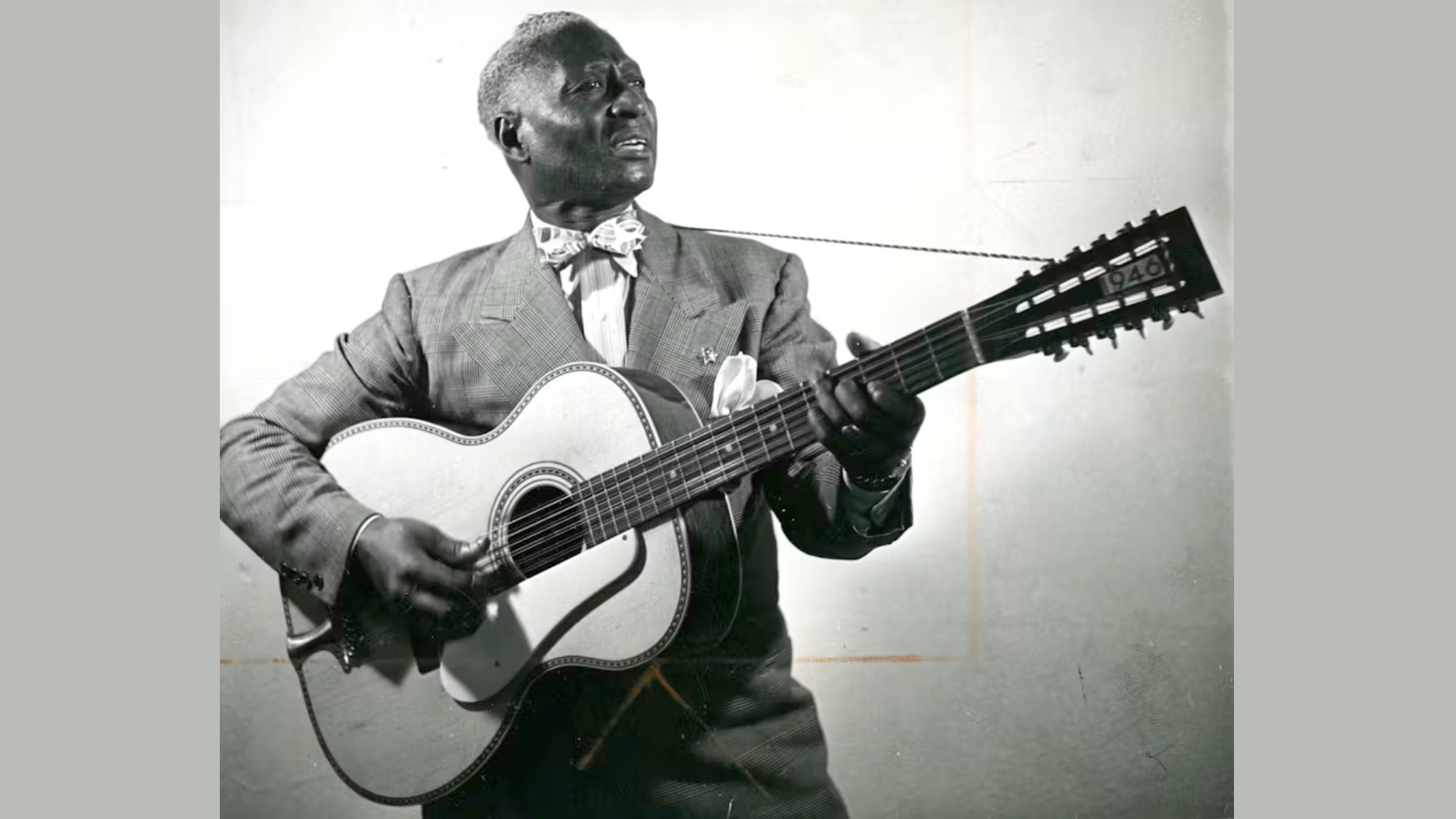
He was known for his unique guitar playing and songs that covered everything from personal stories to social issues.
Despite facing struggles, including time in prison, his talent was recognized by musicians like Pete Seeger and Woody Guthrie.
| Detail | Information |
|---|---|
| Date of Birth | January 20, 1888 |
| Best Songs | Goodnight, Irene, Black Betty, The Midnight Special |
| Awards | Rock and Roll Hall of Fame, Blues Hall of Fame, Grammy Hall of Fame, R&B Hall of Fame Nomination |
18. Lenny Kravitz

Lenny Kravitz is more than just a rock star—he’s a musical force who mixes rock, funk, soul, and blues uniquely. With his iconic guitar riffs, smooth voice, and laid-back style, Lenny Kravitz has built a career spanning over three decades.
Inspired by icons like Jimi Hendrix, Prince, and The Beatles, he created a sound that is uniquely his.
| Detail | Information |
|---|---|
| Date of Birth | May 26, 1964 |
| Best Songs | Are You Gonna Go My Way, Fly Away, American Woman, It Ain’t Over ‘Til It’s Over |
| Awards | 4 Grammy Awards, 1 MTV Video Music Award,2 American Music Awards, 1 BRIT Award, 1 Billboard Music Award |
19. Elizabeth Cotten
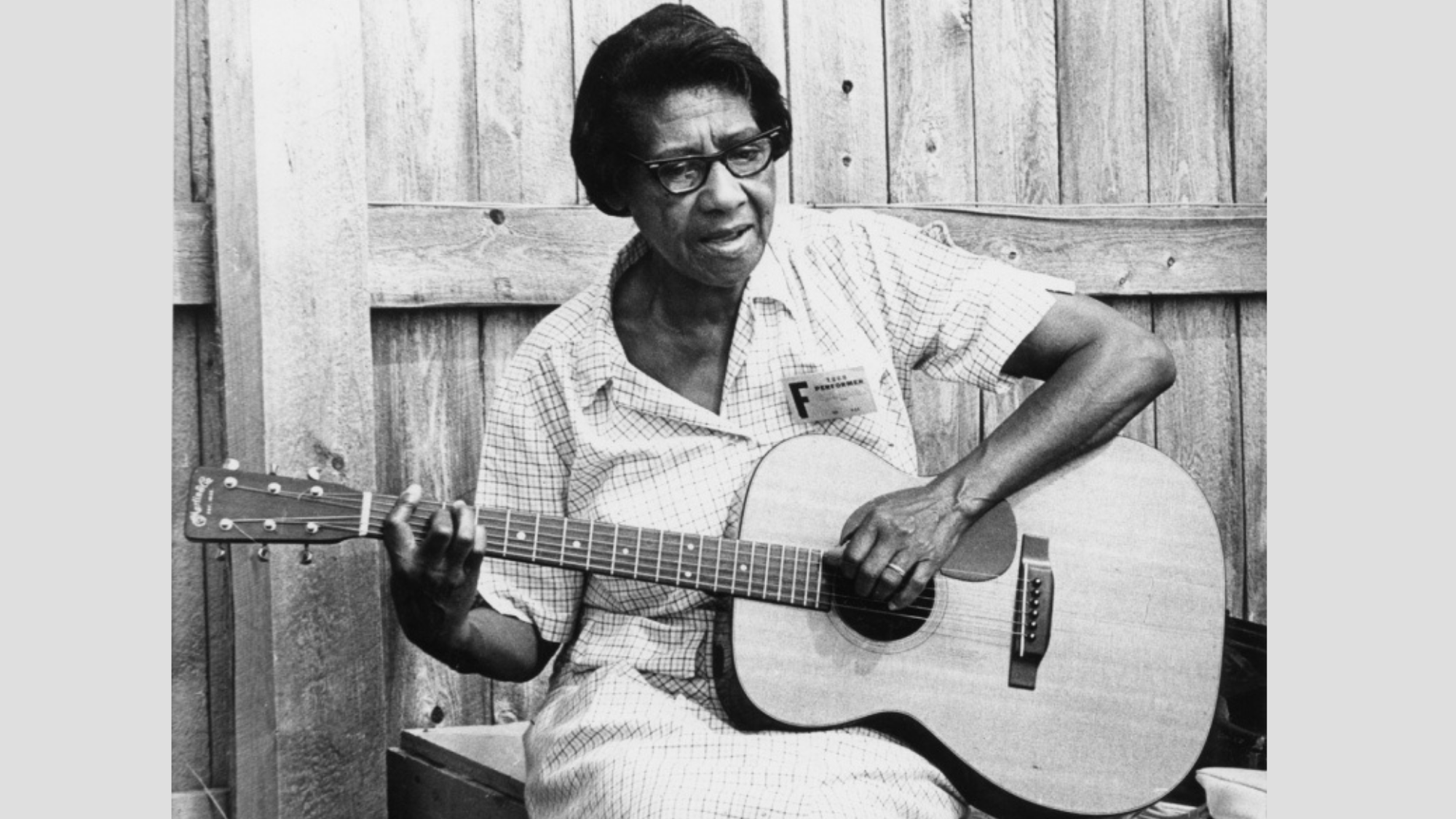
A self-taught guitarist who created her unique style. She played left-handed by flipping a right-handed guitar upside down, which led to her famous “Cotten picking” style.
Cotten’s soft fingerpicking style, which blends jazz and gospel, still inspires musicians today with its emotional richness and ability to tell stories through music.
| Detail | Information |
|---|---|
| Date of Birth | January 5, 1893 |
| Best Songs | Freight Train, Wilson Rag, Loch Lomond, I Don’t Love Nobody |
| Awards | 1 Grammy Award, National Heritage Fellowship, Rock and Roll Hall of Fame, Blues Hall of Fame, North Carolina Folk Heritage Award |
20. Sister Rosetta Tharpe
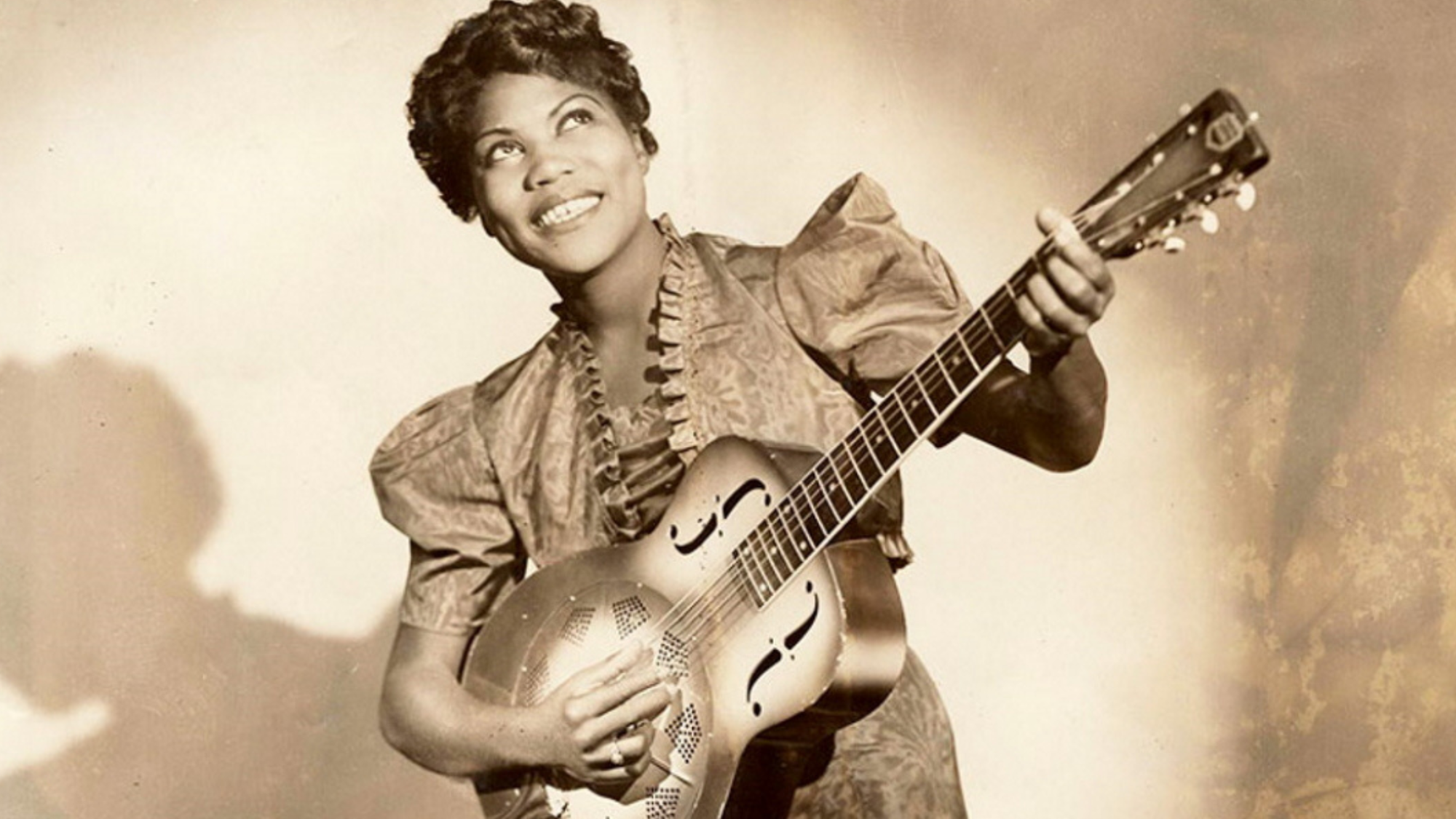
She was one of the first to use the electric guitar in gospel music, which impacted artists like Elvis Presley and Chuck Berry.
From a young age, she performed in church with her mother, Katie Bell Nubin, a traveling missionary. Her guitar playing and powerful voice helped make gospel music popular with more people.
| Detail | Information |
|---|---|
| Date of Birth | March 20, 1915 |
| Best Songs | This Train, Up Above My Head, Down by the Riverside, Strange Things Happening Every Day |
| Awards | Rock and Roll Hall of Fame, Grammy Hall of Fame Award, Blues Hall of Fame, Gospel Music Awards |
Frequently Asked Questions
Have Black Guitarists Historically Faced Challenges in the Music Industry?
Yes, they have faced systemic racism, underrepresentation in media, limited access to major labels, and not receiving the recognition they truly deserve.
How did Gospel Music Influence Black Guitarists?
Gospel’s soulful expression and rhythmic patterns, often learned in church, played a key role in shaping the unique playing styles of many Black guitarists.
Who was the First Famous Black Guitarist?
Sister Rosetta Tharpe, known as the Godmother of Rock and Roll, is one of the earliest recognized Black guitarists to gain fame in the 1930s and ’40s.


